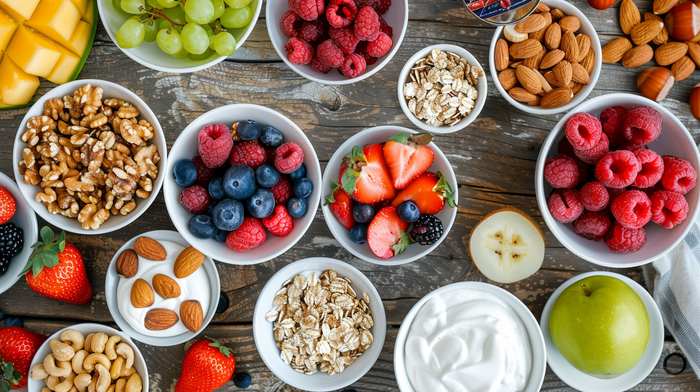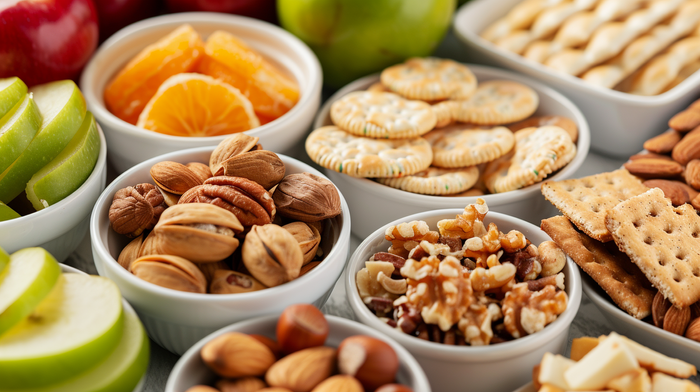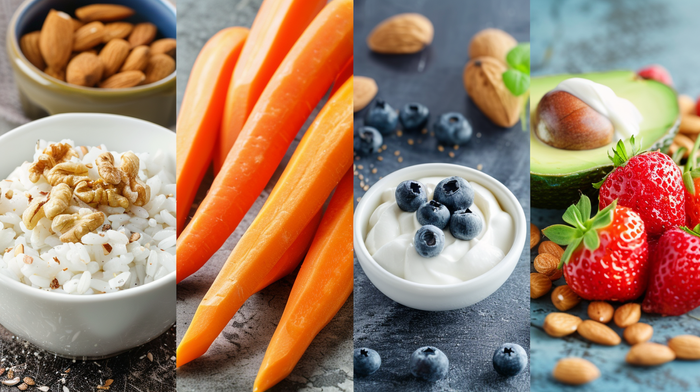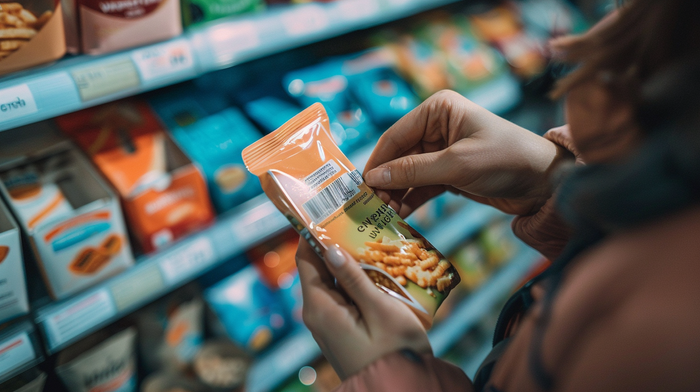What snacks should you choose to avoid sabotaging your diet? A guide to calories

Anyone who has ever tried to stick to a healthy diet knows that one of the biggest challenges is snacking. It's easy to eat something unhealthy when hunger attacks between meals. However, by choosing the right snacks, we can not only satisfy our hunger, but also support our dietary goals. In this article, we'll take a look at which snacks to choose so as not to sabotage your diet, focusing on their caloric value and health benefits.
Understanding calories
Before we dive into the world of snacking, it is important to understand what calories are and how they affect our weight. A calorie is a unit of energy that the body derives from food. To maintain our weight, we need to consume as many calories as our body needs to function. Consuming more calories than we need leads to weight gain, while consuming fewer calories than we need leads to weight loss.
How do you choose snacks?

When choosing snacks, it is important to pay attention not only to their caloric content, but also to their nutritional value. The ideal snack should be low in calories, but rich in nutrients such as protein, fiber, vitamins and minerals. Such snacks will help you feel satiated for longer while providing support for your body.
Examples of healthy snacks

Here are some examples of snacks that are both low in calories and rich in nutrients, ideal for including in your diet:
- Sliced fresh fruits - rich in fiber and vitamins, yet low in calories.
- Vegetables with hummus - a great source of protein and fiber, helping to keep you feeling satiated.
- Nuts and seeds - contain healthy fats, protein and fiber, but be careful with portions, as they are caloric.
- Natural yogurt with added fruit - a source of protein and probiotics that promote intestinal health.
- Rice crisps with avocado or salmon - a source of healthy fats and protein.
Tips to avoid calorie traps

When choosing snacks, it's easy to fall into calorie traps, even when choosing products that seem healthy. Here are some tips on how to avoid them:
- Read labels - even "healthy" snacks can contain hidden sugars or fats.
- Avoid "light" snacks - they often contain more sugar to compensate for the lack of fat.
- Portion out snacks - it's easy to exceed the recommended portion when eating straight from the package.
- Choose whole foods - processed snacks often contain additives that increase their caloric content.
Summary

When choosing snacks, it is crucial to pay attention not only to their caloric content, but also to their nutritional value. By choosing nutrient-rich snacks, we can not only satisfy our hunger, but also support our health and dietary goals. By keeping in mind tips for avoiding calorie traps, we can more easily control our diets and enjoy healthy, tasty snacks without worrying about sabotaging our efforts to maintain a healthy weight.




